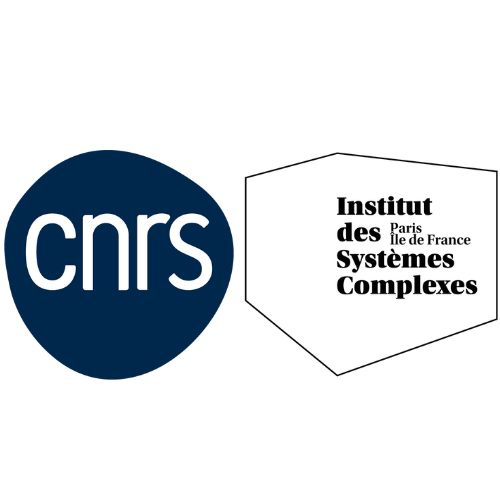Alexandre Delanoë
Développeur et Ingénieur de recherche
Chef de projet de la plateforme Gargantext.
Gargantext est un logiciel libre pour l’exploration interactive de grands corpus numériques. Il est développé à l’ISC-PIF par l’équipe “Digital Humanities” en partenariat avec plusieurs institutions et projets.
Ce service web combine l’exploration de texte avancée, l’analyse de réseau et la visualisation interactive pour fournir de nouvelles formes d’interactions avec vos corpus. Faites des des cartes scientifiques, faites un état de l’art, etc. en quelques minutes.
Prix
2020 : Cristal Collectif CNRS winner, COVID 19 data. The virus at a glance. Reacting to uncertainty using the GarganText protocol
2012 : Digital Green Growth Award. Winner of the Research prize. Sociological project in the Smart Grids sector
Publications
Chavalarias D., Casilli A., Delanoë A., Dulong de Rosnay M., De Gelder B., Frau-Meigs D., Jouve B., et al. 2023. « Toward a Research Agenda on Digital Media and Humanity Well-Being ». European Roadmap 2023. European Commission. https://hal.science/hal-04091733.
In this chapter, Alexandre Delanoë argues that the best way to protect privacy will be by building infrastructure based on anonymity first and then using privacy-enhancing technologies, along with implementing a variety of strong privacy policies and practices.
Lobbé, Q., Delanoë, A., Chavalarias, D., 2021. Exploring, browsing and interacting with multi-level and multi-scale dynamics of knowledge Information Visualization
This article introduces an endogenous method for visualizing the multi-level and multi-scale properties of phylomemies, enhancing traditional tree-like representations. Three case studies illustrate the system’s capabilities, including reconstructing the scientific landscape of top-cited publications from the French CNRS and monitoring the discovery process of Covid-19 vaccines.
Chavalarias, D., Lobbe, Q., Delanoë, A., 2021. Draw me Science – multi-level and multi-scale reconstruction of knowledge dynamics with phylomemies. Scientometrics.
We show in this paper how phylomemy reconstruction can take into account users’ preferences within the framework of embodied cognition.
Delanoë, A. (2015). Data on quantified self as boundary objects. A case study on households’ electricity consumption, in “Rassegna Italiana di Sociologia, Rivista trimestrale fondata da Camillo Pellizzi” 3-4/2015, pp. 503-528, doi: 10.1423/81803
This paper analyzes the development of “reflexive” socio-technical infrastructures, aiming at enabling and organizing the encounters between persons and real time dynamics visualizations of their own practices. In the context of increasing digitalisation of portions of everyday life, the use of data and the process of data production itself as boundary objects. Such a reflexive socio-technical approach is symptomatic of the development of trace-based regulation of practices.
Delanoë, A. (2007) « La responsabilité managériale face au risque. Littérature savante, presse et Internet. Le fait moral comme justification culturelle de la performance. » Thèse de doctorat de sociologie, Bordeaux.
Which organizational form for which adaptation in which context? This sociology thesis, published 12 years before COVID, explores the organizational impact of crises on governance. From hierarchical to networked organizations, the methodology combines quantitative textual analysis and qualitative interviews in an action research approach. Like the section on software copyright and organizational form, the proposed reading grid can be mobilized in combination with Conwell’s law, since software is the mirror image of the organization that produced it.
CONTACT
alexandre.delanoë (at) iscpif.fr
SITE WEB
https://alexandre.delanoe.org/
ORGANISME
ISC-PIF
UPS 3611 CNRS
113 rue Nationale
75013, Paris



